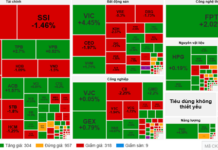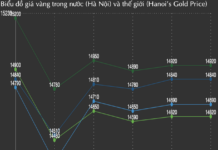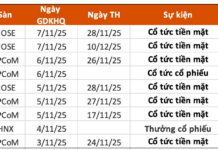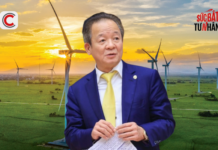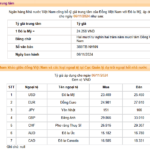
Dat Bike has just launched three new Quantum S-series products simultaneously, including the Quantum S1, S2, and S3, with specifications and prices catering to various customer segments. This move comes as electric vehicles are already experiencing significant growth in Vietnam, evident from the extensive partnerships of Xanh SM.
With Dat Bike, the company’s leadership also affirms that Vietnam is entering a “new era” of green transportation, presenting a golden opportunity for the electric vehicle industry to thrive.
Ny Bui, Dat Bike’s Sales Director, interprets this “new era” of green transportation as a time when electric vehicles can entirely replace gasoline-powered ones, meeting both performance and financial accessibility needs for a diverse range of customers.
“A clear indication that we have entered this new era is the remarkable progress in product innovation. In 2021, Dat Bike’s Weaver 200 model drew attention as the first in Southeast Asia to offer a range of up to 200km per charge at a price of 54.9 million VND (approximately 2,300 USD). At that time, similar models globally would have cost no less than 8,500 USD. Today, the Quantum S3 model achieves a similar range at just 34.9 million VND (approximately 1,450 USD),
“, she said.
Moreover, the “new era” is also influenced by “timely conditions and favorable circumstances.” According to Ny Bui, the electric vehicle market in Southeast Asia, particularly in Vietnam, is witnessing rapid growth. While the demand for gasoline-powered motorcycles is declining, the sales of electric motorcycles are booming, with an average growth rate of 30%/year. Notably, consumers in large cities are shifting towards environmentally friendly vehicles to reduce air pollution.
In reality, electric motorcycles are a rapidly growing trend worldwide, and in Vietnam, this trend holds even more potential, outpacing other countries in the Southeast Asian region.
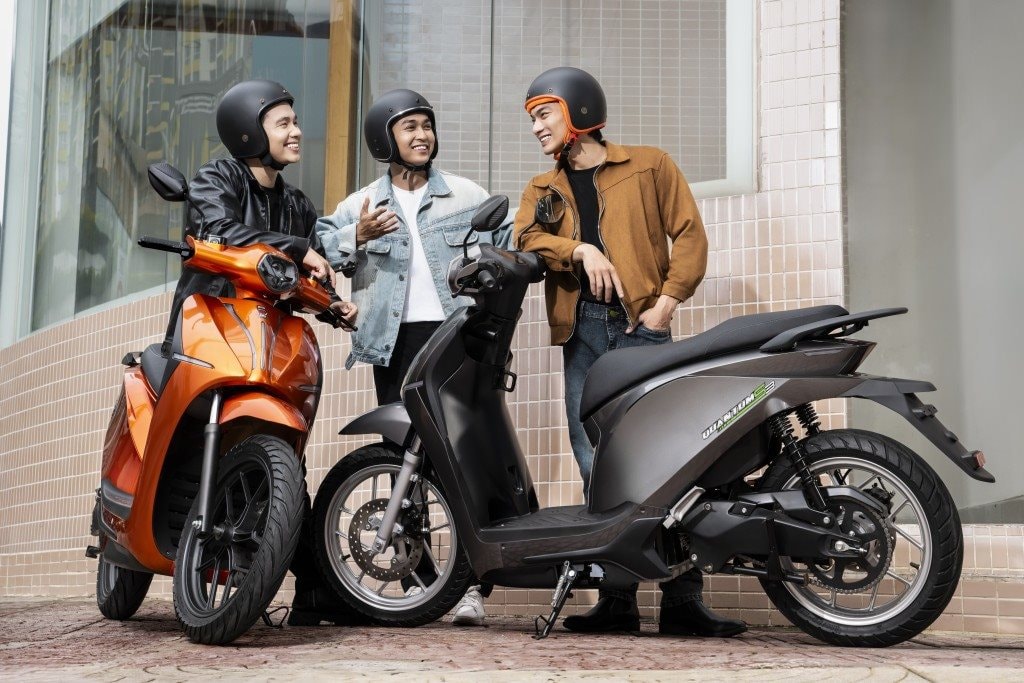
Photo: Dat Bike’s 3 New Models
There are
three reasons why Vietnam stands out in the electric vehicle trend:
Firstly,
Vietnam has a high electric vehicle ownership rate. It boasts the largest electric vehicle consumption in Southeast Asia, accounting for 80% of the region’s production, and an impressive 10% of total vehicles on the road are electric, while countries like Indonesia and Thailand have much lower ownership rates of only 1-2%.
This high ownership rate indicates that consumers are already familiar with electric vehicles, making it easier to accelerate the transition and reduce the time needed for widespread adoption, unlike other countries that may require up to five years.
Secondly,
Vietnam presents a large potential market. Approximately 50 million motorcycles are currently in circulation in the country, ranking second in Southeast Asia. The sales growth rate of electric motorcycles in Vietnam reaches about 30% annually. By 2030, it is predicted that electric vehicle ownership in Vietnam will reach 42%, a significant increase from 10% in 2023, creating an $8 billion market opportunity.
Thirdly,
Vietnam has the longest history of developing the electric motorcycle industry in the region. Fifteen to twenty years ago, dozens of companies ventured into this industry, fostering a robust ecosystem. The country has witnessed a remarkable growth rate in electric motorcycle ownership, rising from 5.14% in 2018 to 10% in 2023. Additionally, the market penetration rate of electric motorcycles has reached 1.62%, a considerable advancement compared to previous years.
With these factors in play, Vietnam is in an advantageous position to lead the electric motorcycle trend in Southeast Asia. Government support will further solidify this standing in the future.

“Vietnam has a great opportunity to lead the electric vehicle trend in Southeast Asia, especially as the region experiences two parallel trends: the shift from gasoline to electric vehicles and the relocation of manufacturing from China to Southeast Asia,” she emphasized.
In a previous share, CEO Cảnh Sơn also mentioned these two trends: (1) the shift from gasoline to electric vehicles and (2) the relocation of manufacturing out of China. According to him, when these two trends converge, it creates an opportunity to build our own industry.
“This is a strategic time for Vietnam to develop its electric vehicle industry and make its mark on the map of leading manufacturers in the region and the world,”
Dat Bike’s representative stated.
When these two trends intersect, a company in Southeast Asia can rise to the top of the two-wheeler industry. Southeast Asia is one of the world’s largest two-wheeler markets, yet it is the only region without a domestic company dominating the local market. China and India have local companies leading their domestic markets, while Southeast Asia is headed by Japanese companies.
Compared to Indonesia and Thailand, which have highly developed auxiliary industries for gasoline vehicle production and strong government subsidies to promote the transition to electric vehicles, Vietnam still holds distinct advantages.
Additionally,
Vietnam is among the top countries in the world in terms of rare earth reserves
, possessing the capability to provide essential raw materials for electric vehicle production. This reduces the industry’s dependence on imports and enhances its independence.
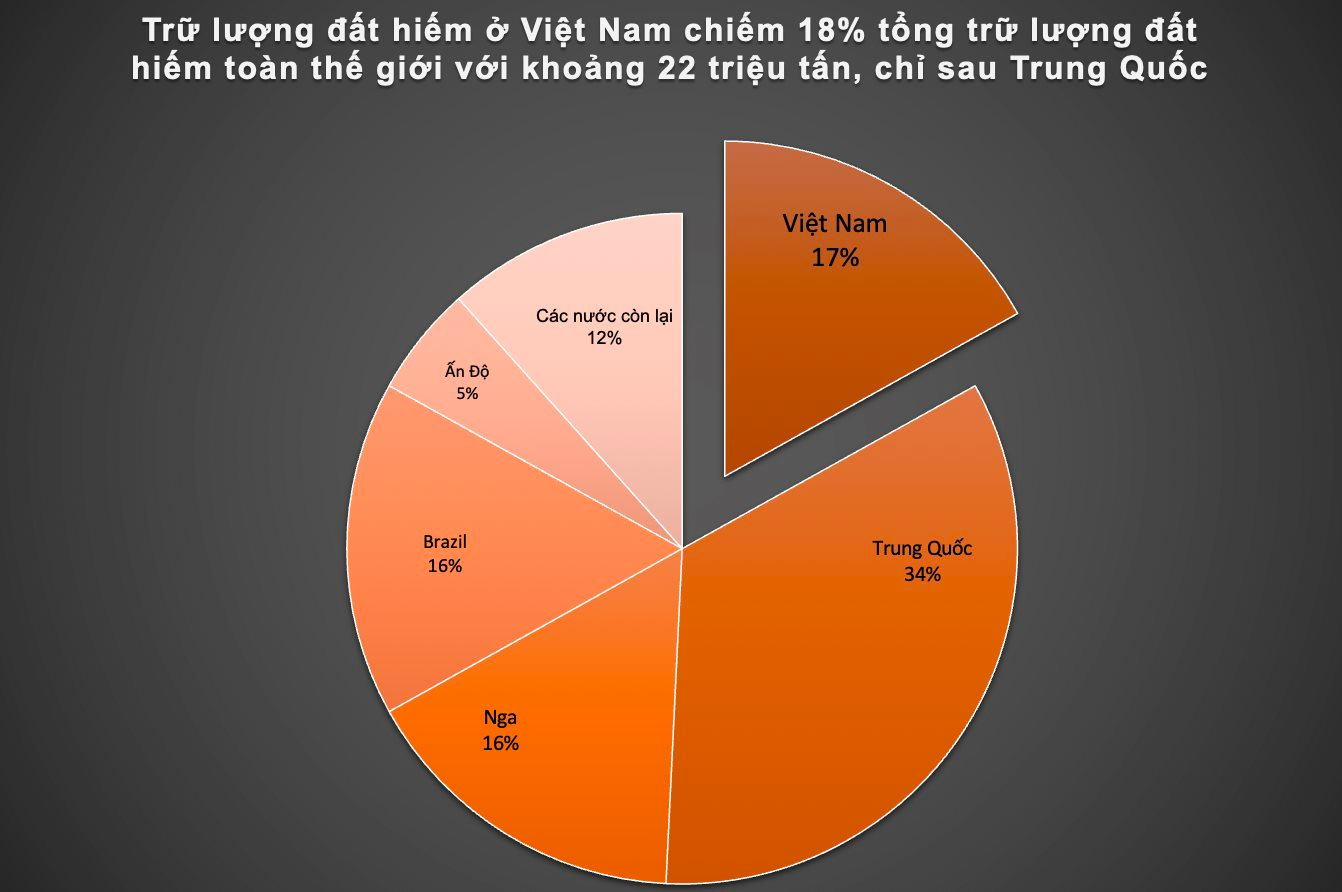
Photo: Source – US Geological Survey, 2023
However, to attain this position, Vietnam requires additional mid to long-term strategies and strong, timely government support for the electric vehicle industry. Given the “the winner takes all” nature of this market,
a Vietnamese company has the potential to dominate the entire regional two-wheeler market. Conversely, if Vietnam fails to seize this opportunity, it will undoubtedly be overshadowed by foreign brands, resulting in local consumers relying on vehicles from neighboring countries.

Dat Bike’s representative also shared that the company’s sales are experiencing robust growth, ranging from 4 to 10 times, and this year’s results, up to this point, are no exception. This success is attributed to the launch of the Quantum model last year and the three Quantum S models in late October, coupled with an expanded distribution system.
In 2024, Dat Bike expanded its distribution network to 12 stores nationwide as of the end of October, up from 3 stores at the beginning of the year. The goal is to have a presence in all provinces and cities across the country by the end of 2025, offering a comprehensive range of services, including vehicle sales, accessories, and repair and warranty services, to better reach and serve customers.
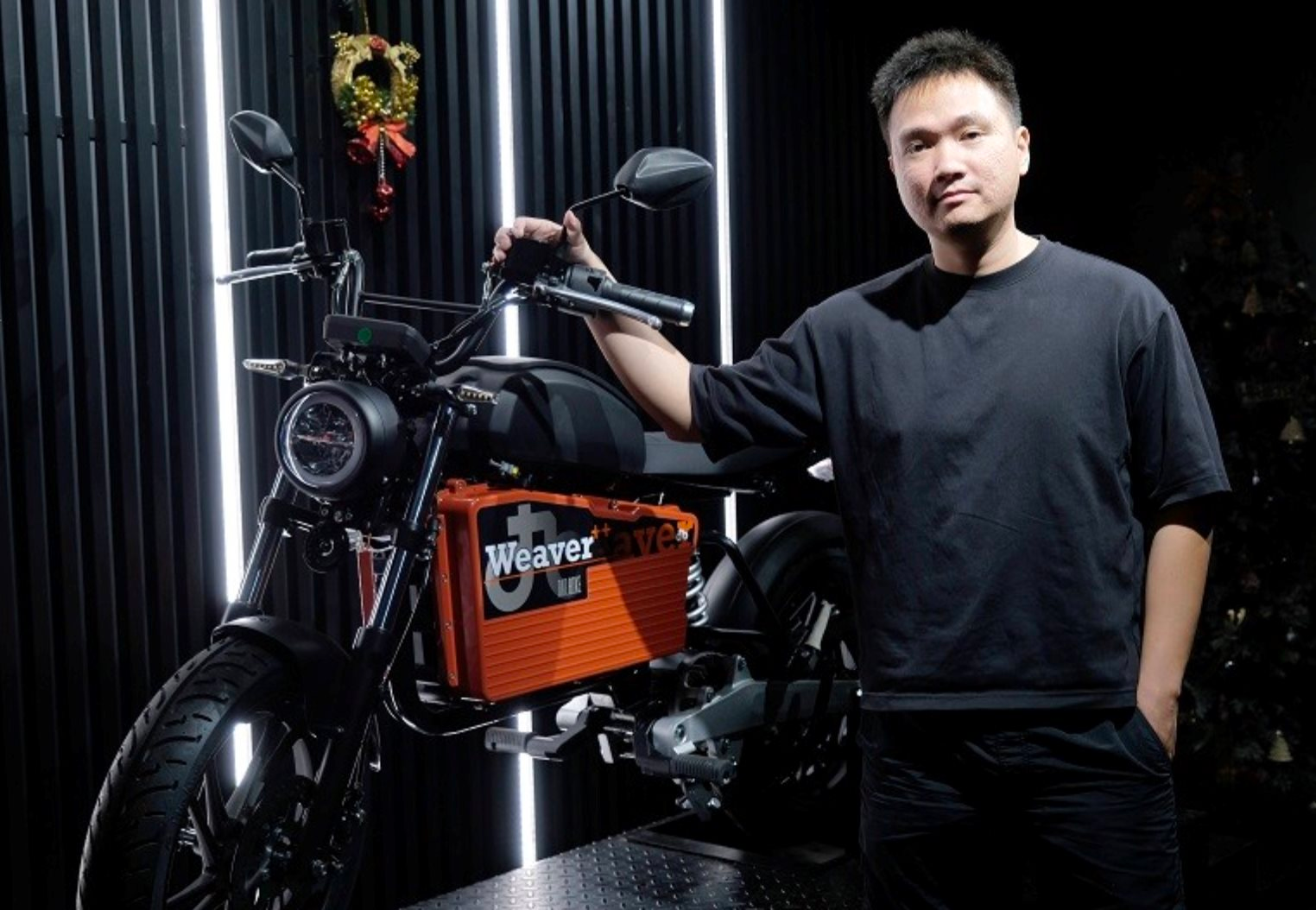
Photo: Founder and CEO Nguyễn Bá Cảnh Sơn with Dat Bike’s First Electric Vehicle Model
Dat Bike was established in 2019 by Nguyen Ba Canh Son, a software engineer who previously worked in Silicon Valley. Dat Bike is a rare case of successful fundraising during the ‘fundraising winter’ currently experienced by Vietnamese startups.
In August, Dat Bike secured a $4 million convertible loan from InfraCo Asia, a member of the Private Infrastructure Development Group (PIDG), bringing its total raised funds to $25 million. This investment underscores the confidence of the investment community in Dat Bike’s development and long-term goals.
The Fashion Brand Lep’ Shuts Down: A CEO’s Heartfelt Letter on the Reasons for Closing After 8 Years
The fashion brand, Lep’, has just announced via their Facebook fan page that they will be closing all their stores. This surprising news has left many fans of the brand shocked and saddened. As Lep’ has built a strong reputation for its unique and trendy designs, this abrupt announcement has certainly caught the attention of the fashion industry and its loyal customers.
The Future of Vietnam-US Relations: A Comprehensive Strategic Partnership Forum
Vietnam Economic Times, or VnEconomy, is proud to be the official media sponsor for the upcoming event on November 15th.
“VinFast Secures Backing from Vingroup and Chairman Pham Nhat Vuong to Fortify its War Chest and Accelerate its Ascent.”
On November 12, 2024, Vingroup and Mr. Pham Nhat Vuong announced a financial support package for VinFast. As part of this, Vingroup plans to provide VinFast with new loans of up to VND 35,000 billion by the end of 2026. In addition, Mr. Pham Nhat Vuong has committed to personally sponsoring VinFast with VND 50,000 billion. Furthermore, Vingroup will invest in VinFast Vietnam by converting the existing loan of approximately VND 80,000 billion into preferred shares, which will be eligible for dividends.

